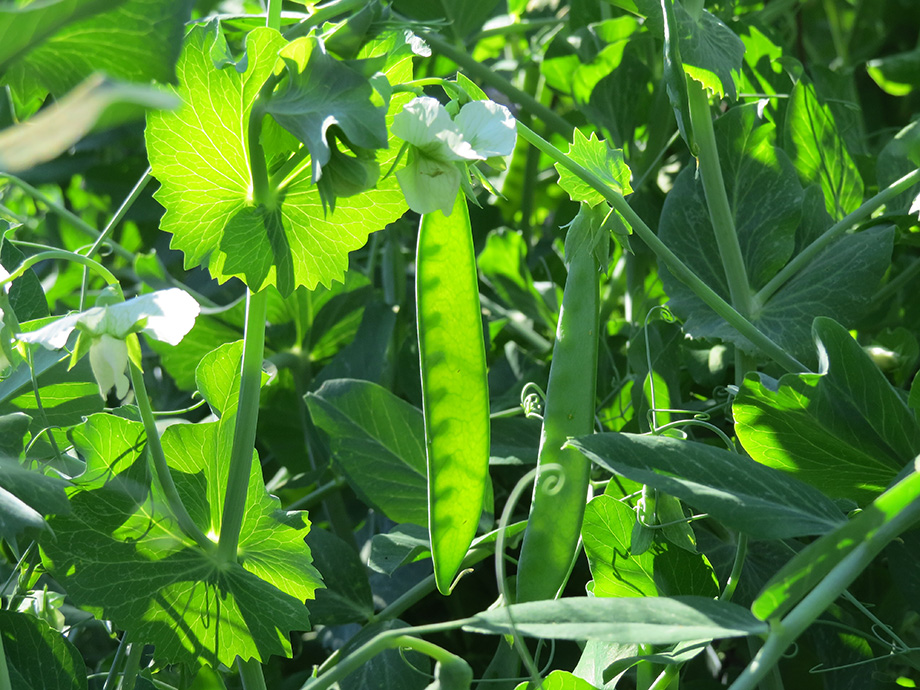Column: Smart Gardening Practices

Have you ever wondered what the secret is to keeping your vegetable plants healthy and productive? Well, it all comes down to using smart gardening practices. They make all the difference in how well plants grow and handle challenges such as insect or disease problems.
That is the topic of my garden column for today. It appeared in today’s edition of The Spokesman-Review newspaper in Spokane, Wash. I hope you will find some really useful tips in it so you will have your best garden season ever!
by Susan Mulvihill
It sure is frustrating when challenges arise in the vegetable garden. They might come in the form of damaging insect pests, unusual disorders that impact a crop’s growth or plant diseases caused by pathogens.
We gardeners have more control over these types of things than we realize. When we meet our plants’ needs and get them off to a great start, they are better able to fend off problems.
Let’s take a look at some of the most important garden practices we should all be engaging in.
Vegetable plants require a minimum of 6 to 8 hours of sunlight daily in order to grow well. Take a look at your garden spot to make sure trees or shrubs aren’t shading the area at different times of the day. If they are, a bit of pruning is in order. Some crops will tolerate a little shade – beets, bok choy, celery, lettuce and spinach, for example – but it’s best to follow the general rule of thumb if you can.
Provide your veggie plants with the right types of nutrients, based on the type of crop they will produce for you. Leafy crops such as lettuce, mizuna, spinach and cabbage benefit from fertilizers that are high in nitrogen. The first number on the package should be the highest.
Crops that will bloom and set fruit – think of tomatoes, melons, squash and peppers – need higher amounts of phosphorus, which is reflected by the middle number on fertilizer packages. Coincidentally, root crops such as carrots, parsnips and turnips also need phosphorus in order to produce those big roots we all love to eat.
Compost is beneficial for all types of crops as well. I like to place a 1-inch layer of compost on the surface of my raised beds in early spring because it’s filled with all sorts of wonderful nutrients and beneficial microorganisms.
When planting your vegetables, space them according to the information on the seed packet or plant tag. I know we all want to fit as many plants as possible in our gardens, but crowded plants are stressed plants. That’s because they’re competing with each other for moisture, nutrients, sunlight and space. When plants are stressed, they are more susceptible to insect and disease problems.
Be sure to provide your plants with the right amount of moisture. Our vegetable crops will struggle if they’re not getting enough water but overwatering them isn’t the solution either. No plants tolerate having wet roots all of the time.
Did you know you are equipped with your very own low-tech moisture meter? Just poke your finger into the soil up to the second knuckle to determine how much water is in the soil. The goal should be lightly-moist soil. Keep an eye on the plants so you know they’re growing normally, rather than wilting. Remember to increase your watering time when summertime temperatures really start heating up.
It’s also a good idea to cover the soil surface with mulch to help it retain moisture longer. Grass clippings are my favorite mulch because we don’t use herbicides on our lawn and they’re a free source. Other viable options are shredded leaves or weed-free straw.
Remember to keep up with the weeding. I know it’s not necessarily a fun task but weeds compete with our plants for moisture, nutrients and space. By pulling those weeds, you can help your crops retain their well-deserved priority in the garden.
Susan Mulvihill is author of “The Vegetable Garden Problem Solver Handbook” and “The Vegetable Garden Pest Handbook.” She can be reached at Susan@SusansintheGarden.com. Watch this week’s video at youtube.com/susansinthegarden.

